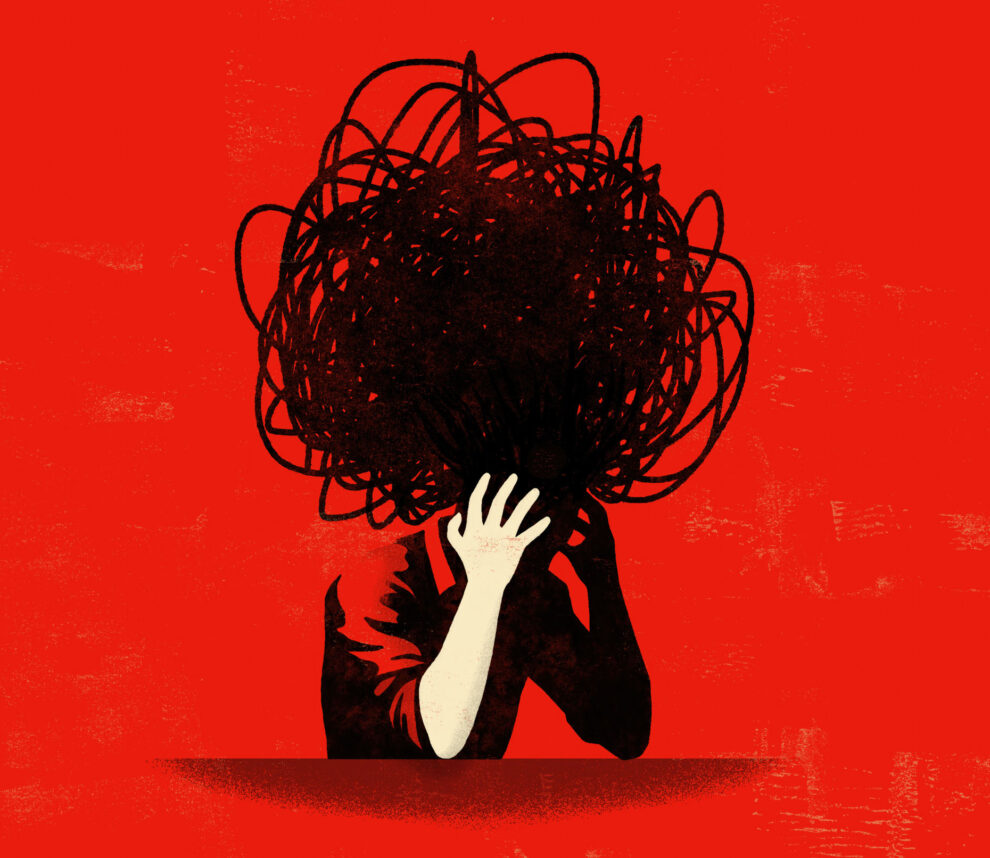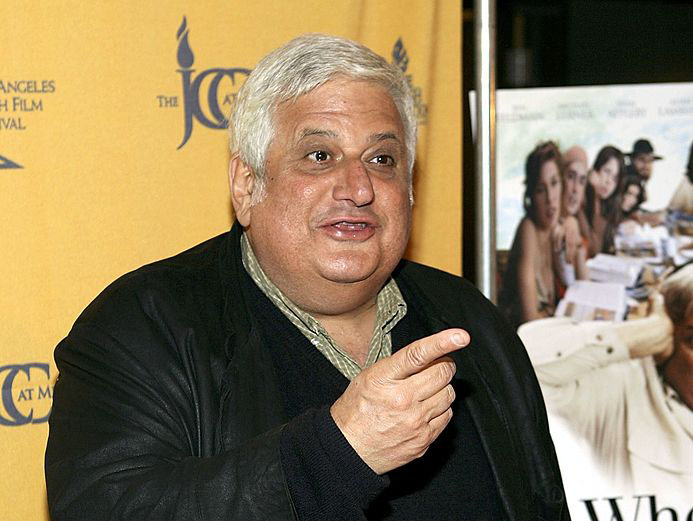Aaron Paley, 41, grew up living and breathing Yiddish.
His world was a community of leftist Jews who considered the radical Workmen’s Circle the reichte, the right wing. Paley attended the collectively-run Yiddish Kindershule and Mittelshule in Van Nuys, where he studied labor history and Sholem Aleichem. He marched with his parents in anti-Vietnam rallies and was riveted by tales of sweatshop workers who became union organizers. For the Paleys and their friends, Yiddish was always associated with struggle and liberation; Aaron grew up an activist in his own right, promoting artists through his Community Arts Resources and organizing festivals devoted to “cultural democracy.”
By the early ’90s, however, Paley became distressed about the state of Yiddish in Los Angeles. The native speakers were dying out; Hebrew had replaced Yiddish as the Jewish language; and Paley’s beloved shule had closed down. &’009;
But a fledgling Yiddish revival was sweeping the country, spearheaded in part by another activist, Aaron Lansky, who had founded the National Yiddish Book Center to rescue Yiddish tomes from the dumpster.
Paley, too, decided to take action, inspired by a theater piece he viewed deep in the woods outside a Belarussian shtetl in 1994. As a performance artist recreated Yiddish life in a manner that was neither maudlin nor mournful, Paley decided to launch an organization and a festival to do the same in L.A.
“Yiddishkayt Los Angeles” began with a one-day festival in 1995; it is returning this month with an eight-day fete, “Yiddishkayt! A Celebration for All Ages — The New Face of an Enduring Culture,” Oct. 18-25. With more than 24 events from the Skirball to Self-Help Graphics, the festival will include plays, cabaret, symphonic music, films and an art exhibit. It will be perhaps the largest event of its kind ever in the U.S.
“I want to show people that Yiddish and Yiddish culture is not dead, kitchy, moribund, tinged with sugary nostalgia or regret about the Holocaust,” Paley explains. “I want them to see that it provides a foundation of ideas and creativity that people can draw on today. You can’t throw away 1,000 years of history; Yiddish is in the DNA of Ashkenazi Jews.”
The festival’s focus, therefore, is not on Bubbe and Zayde, but on artists who are reinterpreting Yiddish culture to create new, contemporary works. The New York avant-garde theater collective, Great Small Works, will present the U.S. premiere of “The Memoirs of Glückel of Hameln,” a cutting-edge music-theater piece based on the Yiddish-language diary of a spirited, 17th century widow.
“Ghetto Tango: Music in Extremis” will focus on artists who worked in makeshift ghetto theaters during the Holocaust; “Viva Klezmer-L’khayim Mariachi!” will feature klezmer and mariachi musicians; the L.A. Jewish Symphony will perform Shostakovich’s song cycle “From Jewish Folk Poetry;” the Workmen’s Circle will dedicate its new, vibrantly colored mural; and Yankev Lewin will present his one-man show based on the classic play, “200,000,” by Sholem Aleichem, with English subtitles. Sabell Bender directs this surprisingly modern piece about a man who wins the lottery and loses it all to sleazy film producers.
Bender, chair of the festival committee, grew up in Boyle Heights when Yiddish was the language of daily conversation. She described how the first Yiddish-speakers came to Los Angeles, early in this century, from the Jewish enclaves of the East Coast. During the L.A. Yiddish heydey from the 1930s to the ’50s, they supported dozens of Yiddish organizations and shules, some socialist, some Labor Zionist, some apolitical, some communist.
There were two local Yiddish theater companies, including the L.A. Yiddish Folks Bineh (The People’s Theater); union meetings were conducted in Yiddish and so were the lectures at the Soto-Michigan Jewish community center in Boyle Heights.
But as second- and third-generation American Jews moved west and assimilated, Yiddish began dying in Los Angeles. Only Chassidic Jews kept on speaking Yiddish in daily life.
The secular Yiddish revival began here and around the country only after Hebrew was firmly established as the language of Israel, says Eric Gordon, director of the Southern California district Workmen’s Circle/Arbeter Ring. It began only after anti-Semitism had declined and Jews felt secure in America. Then, Ashkenazi Jews openly expressed the hunger to return to their roots.
Today, the Yiddish Renaissance is palpable. The National Yiddish Book Center has just opened an $8-million complex in Amherst, Mass., and is planning to digitally scan every page of every Yiddish book ever published, Lansky told The Journal. There is a KlezKemp for klezmer enthusiasts; and mainstream artists are appropriating Yiddish culture as source material (note Pulitzer Prize-winning playwright Tony Kushner’s rendition of “The Dybbuk.”)
Here in L.A., there are dozens of Yiddish-language classes and clubs; a literary journal; at least four professional klezmer bands; a Laemmle Theatres Yiddish film day; and a KCRW-FM series of Yiddish short stories performed by actors such as Leonard Nimoy.
The upcoming Yiddishkayt Festival, which Paley hopes will become a biennial event, is part and parcel of the Renaissance. “I want people to realize that Yiddish is relevant and has a place in L.A. in 1998,” Paley says.
For information and a festival schedule, call (323) 692-8151.





















 More news and opinions than at a Shabbat dinner, right in your inbox.
More news and opinions than at a Shabbat dinner, right in your inbox.